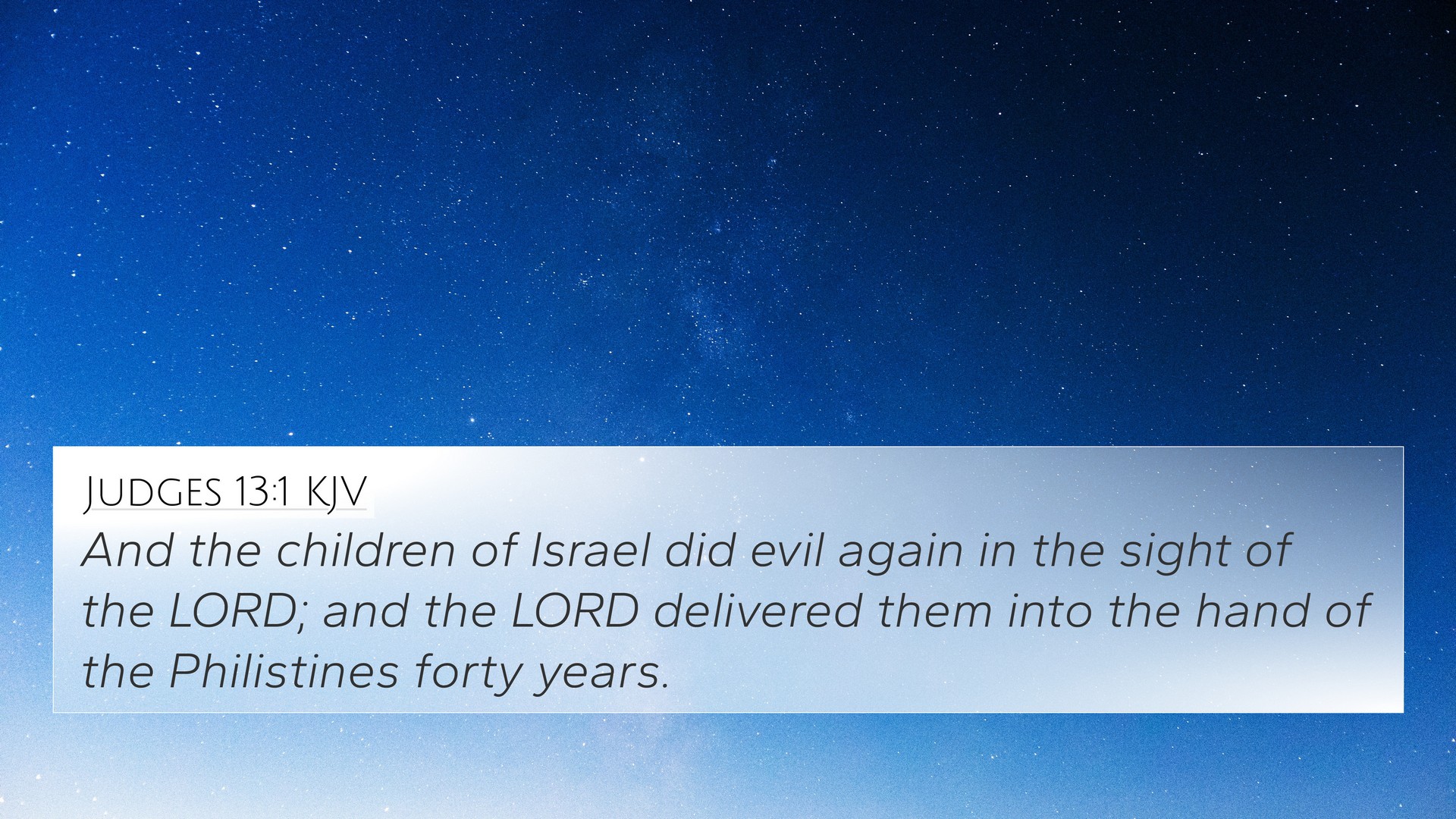Understanding Judges 13:1
Judges 13:1 provides a pivotal moment in the Old Testament, marking the beginning of God's intervention in the life of a chosen deliverer, Samson. The verse states:
"And the children of Israel did evil again in the sight of the Lord; and the Lord delivered them into the hand of the Philistines forty years."
Context and Historical Background
This verse serves as a historical backdrop for the events that unfold in the narrative of Samson. It articulates a recurring theme in the book of Judges: the cycle of disobedience, oppression, repentance, and deliverance.
-
The Cycle of Sin: The phrase "did evil again" highlights Israel's continual failure to remain faithful to God, emphasizing a pattern where the Israelites repeatedly turn away from His commandments.
-
Divine Judgment: The expression "the Lord delivered them" indicates that the oppression by the Philistines was a consequence of Israel's sin, showcasing God's role in both justice and mercy.
-
Philistine Oppression: The mention of the Philistines establishes them as a significant adversary during this period, underscoring the struggles faced by the Israelites.
Thematic Bible Verse Connections
The opening verse of Judges 13 sets the stage for exploring various themes within scripture:
-
Sin and Consequence: This theme is echoed in Deuteronomy 28:15, which outlines the curses that come from disobedience.
-
Forgiveness and Restoration: The process of turning back to God is notably portrayed in 1 John 1:9, which assures believers of God's faithfulness to forgive.
-
God's Sovereignty: The concept that God remains in control, even amidst human failure, is explored in Romans 8:28.
-
Divine Purpose: God's selective call upon individuals is a motif also found in Isaiah 49:1, where God speaks of forming and calling us.
Bible Verse Cross-References
When performing a comparative Bible verse analysis, one can draw connections from Judges 13:1 to other biblical passages that portray similar themes:
- Judges 2:11-14 - Reiterates the cycle of sin and consequences faced by Israel.
- Psalm 81:11-12 - Highlights what occurs when God’s people turn away from His guidance.
- Romans 1:24 - Discusses the consequences of nations choosing to disregard God.
- Hebrews 11:32-34 - Mentions Gideon, Barak, and Samson as examples of faith acting in deliverance.
- Acts 13:20-22 - References God's choice of judges to lead Israel, including Samuel and Samson.
- Revelation 2:5 - Calls for repentance and returning to the first works, mirroring Israel’s need for repentance.
- Matthew 24:21 - Talks about great tribulation, drawing a parallel to Israel's oppression in Judges.
Scriptural Cross-Referencing
Cross-referencing Biblical texts can illuminate connections between Old and New Testament themes, helping in deeper understanding:
Identifying Connections
In undertaking a Bible cross-reference study, the following methods can be helpful:
- Utilizing a Bible Concordance: To locate themes and phrases across different books.
- Engaging with a Cross-reference Guide: Helps track similar narratives or themes.
- Participating in Cross-reference Bible Study Groups: To discuss and study connections.
Conclusion
Judges 13:1 not only introduces Samson’s narrative but also encapsulates core themes of sin, judgment, and divine mercy that resonate throughout the Scriptures. Through a robust analysis of the verse and its biblical cross-references, one can appreciate the interconnectedness of God's dealings with His people across time.










